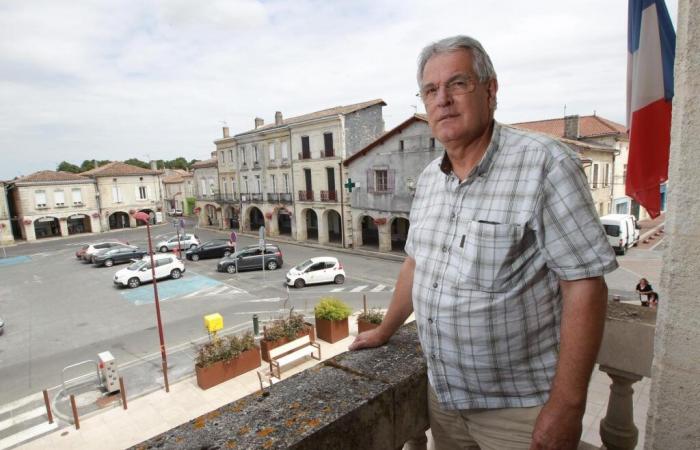Lhe subject, sufficiently worrying, must be the subject of a forum on the occasion of the Congress of Mayors of France organized this week, from November 18 to 21, Porte de Versailles, in Paris. “Local authority insurance, it’s time to act!” » must therefore return to a relatively recent phenomenon which has hit municipalities hard, which are faced with a spectacular increase in the prices of their insurance contracts, a sudden termination or a lack of response to their call for tenders. In Gironde, several municipalities have had to fight and finally break the bank to be able to secure the services of a company in recent months.
In Artigues-près-Bordeaux, a city with nearly 9,000 inhabitants in the Bordeaux metropolis, mayor Alain Garnier managed to sign a “property damage” contract, which insures all municipal buildings, with a company Switzerland last week. Not without difficulty: the community remained four months without any coverage. The old company, of German origin and which was to operate until 2026, suddenly withdrew. “A case law forced it to cover us until June but then, we were no longer insured,” says Alain Garnier. We launched a consultation without receiving any offers. With the help of a broker, we finally received the proposal from this Swiss company, with a doubling of our premium which had already increased significantly in previous years, and a very high deductible, up to 500,000 euros in the event of 'fire… “
A tense context
Why have insurance conditions for communities deteriorated to this extent? Inflation does not explain everything. The events linked to climate change but also the urban violence of 2023 have weighed down the finances of certain organizations, and particularly the Local Authorities Insurance Company (SMACL, which came under the control of Maif), which posted a deficit 200 million euros last year. In its latest report on its solvency and financial situation, it highlights “the occurrence of serious disasters, urban violence and changes in provisioning practices”.
“However,” reacts the mayor of Artigues-près-Bordeaux, “we were not affected by floods, hailstorms or damage during the riots. We are not a municipality particularly at risk and we are faced with the same difficulties…” Same illustration of this paradox about thirty kilometers from Bordeaux, near Créon, with around 5,000 inhabitants and where life is rather good. To ensure the City's dozen or so vehicles last year, the Creon administration struggled to finally accept an offer at a dizzying price: +70%, with the annual premium going from 4,300 to 7,500 euros…
“We say to ourselves that we will certainly have to go through less protective contracts in the future if we wish to continue to be insured”
“But for property damage insurance, we really had difficulty,” confides Mayor Pierre Gachet. The municipality found itself in the same difficulty as that of Artigues-près-Bordeaux. Planted by the same German company, she had to work to find a successor, signing her new contract on December 29, two days before finding herself without coverage. The price has been multiplied by five with, above all, a deductible of 100,000 euros in the event of fire. “100,000 euros! It’s scary for a town of our size. We are not at all used to this price range, we even asked ourselves the question of not taking out insurance and assuming the risks. We say to ourselves that we will certainly have to go through less protective contracts in the future if we wish to continue to be insured,” continues Pierre Gachet.
“A subject that has become political”
“It’s a real subject that has become political,” underlines the mayor of Créon. At the national level, in any case, the reports keep coming. That of the senator from Meurthe-et-Moselle, Jean-François Husson, on the insurance problems of local authorities, was handed over to the former government last spring. Another, entitled “the insurability of the property of local authorities and their groups”, written by Alain Chrétien, mayor of Vesoul (70), and Jean-Yves Dagès, former president of Groupama, was sent in September to the Barnier government . During the presentation press conference, Alain Chrétien warned: “If we do nothing, in the next social or climate crisis, the community insurance system will collapse. »






